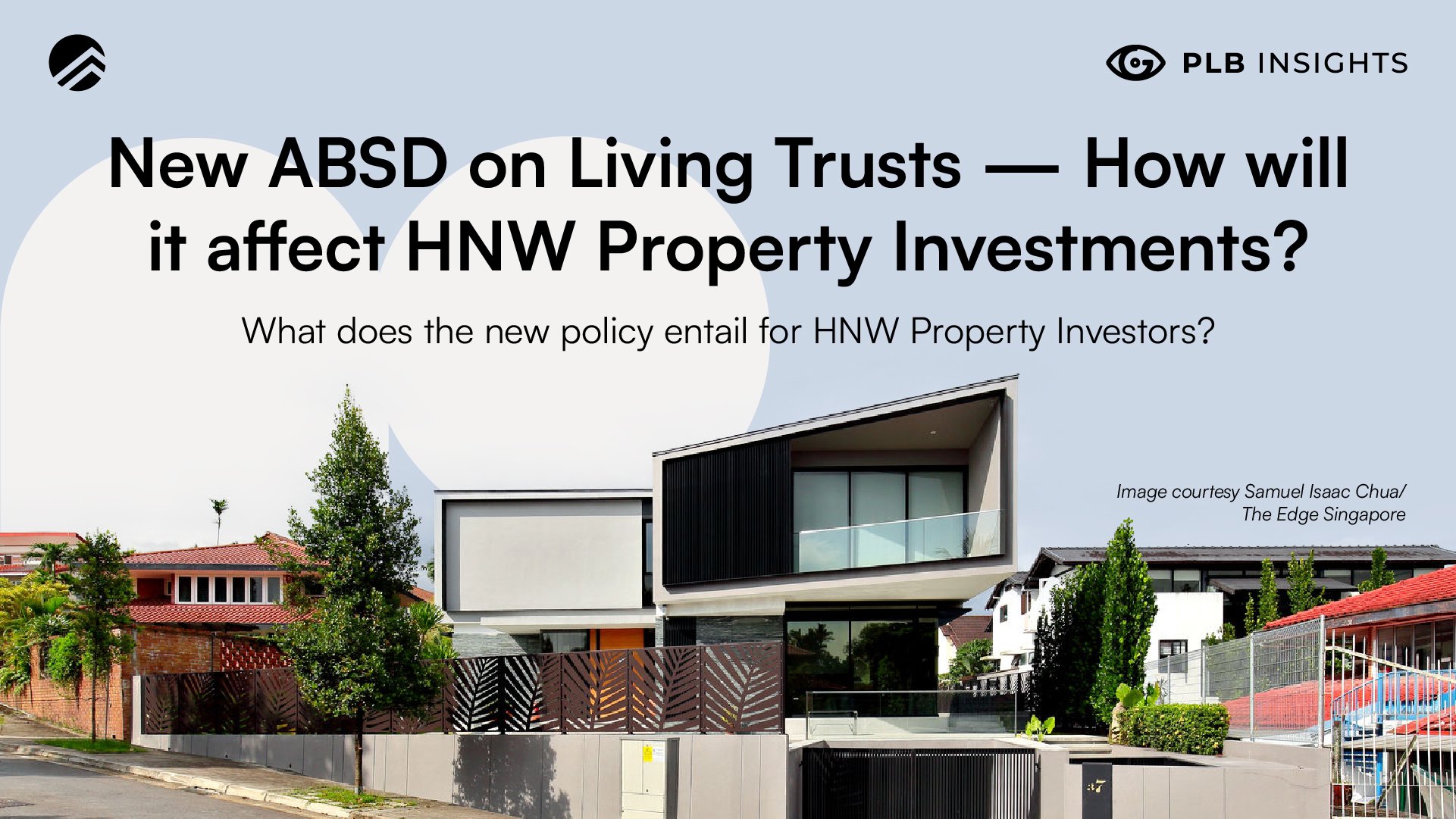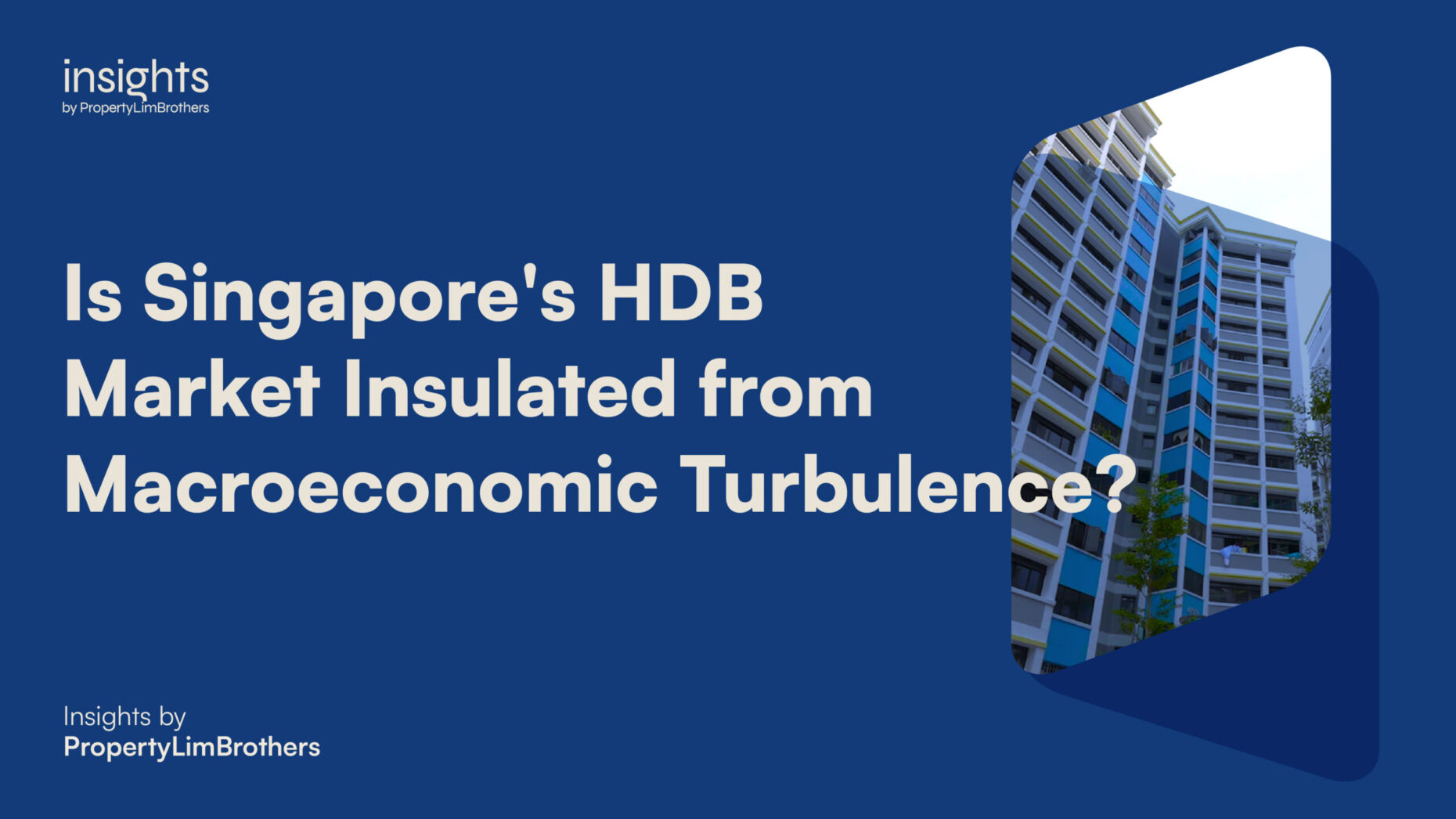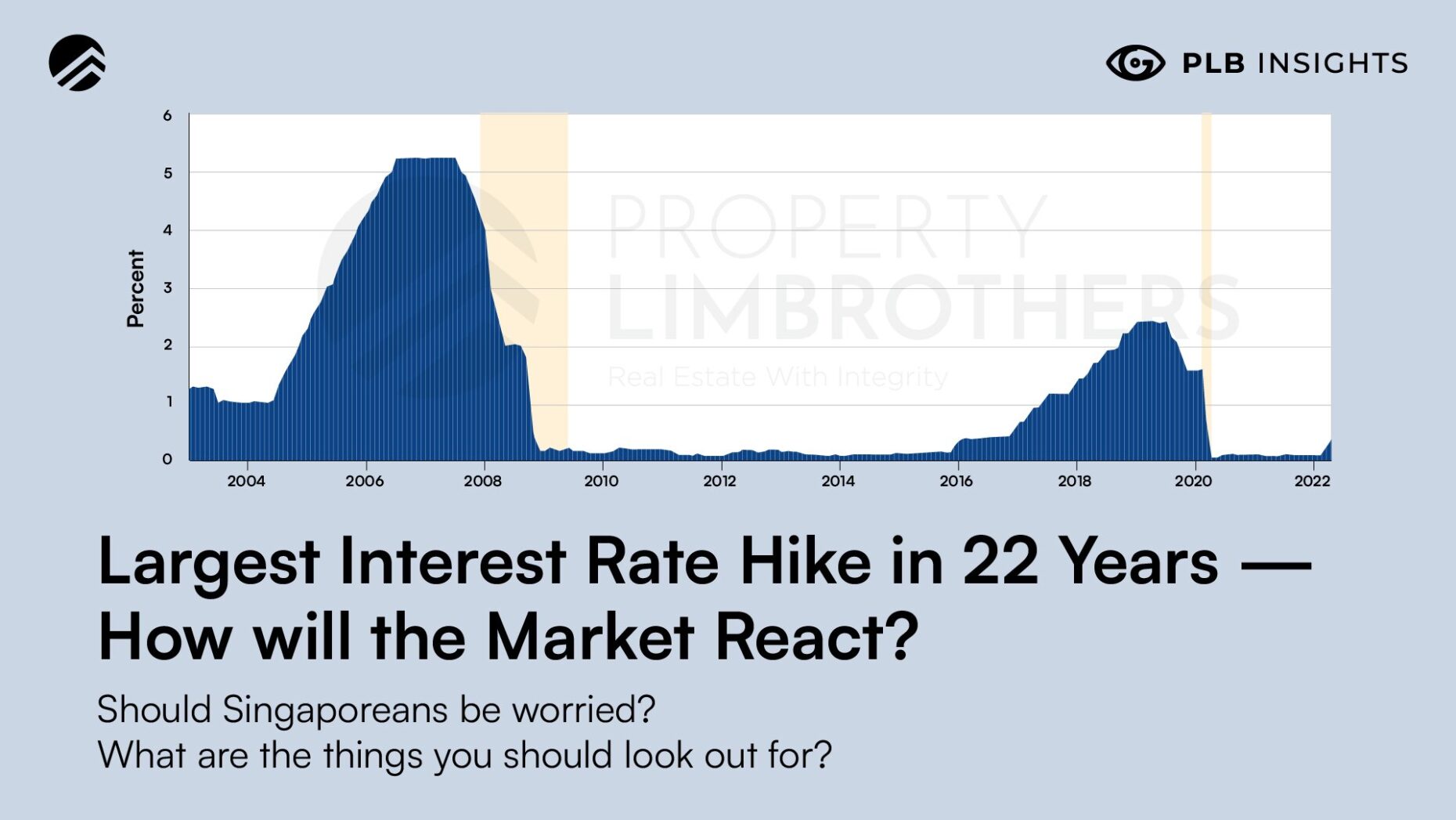On Sunday (8 May), the government put into place another Additional Buyer’s Stamp Duty (ABSD). This time, on Living Trusts. Typically, trusts are usually used for estate planning. The assets of the trustor or settlor are legally put into the hands of the trustee, who has the fiduciary duty to manage the assets in the best interests of the beneficiaries of the trust.
The legal intricacies of trusts and their loopholes can be complex to the everyday person. Previously, a loophole allowed for living trusts to not have an identifiable beneficiary, allowing purchases of residential property to avoid ABSD. The new ABSD rule seeks to close this loophole so that residential property purchases made through trusts are properly accounted for on their tax front.
How has this loophole played out in reality on the ground?
-
Usually this happens when a buyer has maxed out their names, for example one property under each spouse’s name.
-
The family does not want to be taxed under ABSD to purchase additional properties.
-
Their children are below the age of 21 thus barring them from using their kids names to own real estate.
However, using trust as an instrument to own multiple properties requires a few criteria.
-
The property has to be fully paid.
-
The property is held under trust with beneficiary owners usually under the age of 21. Thus this has been a popular method for the past decade.
-
The property usually has to be held for a period of years before the trustee can dispose of the property on behalf of the beneficiary owner.
-
When the beneficiary owner turns 21 years of age, the property will belong to the beneficiary owner fully.
This method is usually used for private properties and thus affects the children’s ability to own any form of subsidised property like a BTO or even resale HDBs when they turn 21 years old because they own a private property under their name. And even if the children were to dispose of the trust property. They will have to wait out for 30 months before they are eligible for any form of subsidised property.
In this article, we discuss why the ABSD might have been implemented now, who it affects, and what will happen from now on. Specifically we cover issues on transparency, capital redistribution, wealth inheritance, and High Net Worth (HNW) property investment strategies.
Transparency in Residential Property Ownership in Trusts
The new ABSD rules on Living Trusts raises the concern of the balance between transparency and privacy. To what extent should individuals (particularly HNW), be able to conceal what they own and how they structure their assets? While these might be out of sight for the public, it isn’t for the government and tax authorities. The intricacies and complexities of trusts can allow individuals to mask the ownership of assets by layering trusts over trusts. Such that the beneficiary owner of a trust is also another trust.
This way of masking the ownership structure of assets can be challenging to tax authorities. Should residential property ownership be made transparent? One interpretation of the recent ABSD slapped on trusts is that the answer is yes. By putting a super hefty 35% ABSD on living trusts for purchasing residential property (when no identifiable individual is stated as the beneficiary third party), it strongly discourages trustors from trying to complicate the ownership structure of the trust.
Trusts as a form of estate planning is more private than a will. Since trust documents are separate and not included in the probate, some members of your family need not be privy on how you want your assets distributed or managed for your intended beneficiaries. It is also a very proactive way of estate planning for wealthy individuals. Where the government is perhaps drawing the line is when complex trusts are created with the intention to hide asset ownership. A fine balance is drawn between maintaining privacy through the establishment of trusts and not being transparent with authorities on how assets are owned by HNW individuals.
Capital Redistribution by Closing Trust Loophole
Another issue that is raised in the recent ABSD implementation is capital redistribution. Some consider this as “levelling of the playing field”. In some cases, it really is. The additional tax revenue that could be earned from the ABSD on large private property transactions is not a joke. While smaller in volume, the large quantums make such taxes a sizable amount. If you consider such taxes as a way to “redistribute wealth” in society, then we can consider it a form of capital redistribution to the other people in society who are beneficiaries of government grants.
This could also be considered as a way to redistribute opportunities in the market. If the ultra-wealthy in society are able to avoid ABSD on residential property, they would be able to build up a portfolio of investment-grade residential property. This pumps up the demand for mid to high end private property, which might price out people who are upgrading their ownstay property. By closing the loophole using ABSD (trust), opportunities are redistributed such that individuals who own multiple properties are not able to avoid ABSD by purchasing through trusts.
However, the new ABSD (trust) is not so far-reaching that it can be considered as a “Cooling Measure”. The commentary on the new ABSD so far is that its implications are limited to a specific demographic in society. Targeting HNW or UHNW individuals that set up trusts to manage their assets for intended purposes.
Implications on Wealth Inheritance and Legacy Planning
This new rule will have implications on using trusts as a tool for wealth inheritance and legacy planning. Assuming that the ABSD loophole was common knowledge for settlors of trusts, the 35% ABSD (trust) is a significant hike. Given this increase in costs, other options for wealth inheritance and legacy planning might become more attractive. Trusts have their own profile of legal and management costs. Comparing this with other methods of wealth inheritance (such as family office, property, corporate stocks, and in recent decades, legacy planning instruments by insurance brokers), trusts might become a less attractive option for a wider range of HNW individuals.
Specifically, if the loophole no longer exists, then the benefits of using trusts as a form of wealth inheritance will be diminished. If they are eligible, it might be more efficient to spend the capital on insurance, stocks, or buying the property directly for their beneficiaries. Some living trusts specify the transfer of assets under certain conditions, such as the child turning a certain age or meeting certain criteria. To be clear, part of the 35% ABSD (trust) might be refundable if the living trust was structured simply.
According to the Ministry of Finance,
-
All beneficial owners of the residential property are identifiable individuals;
-
Beneficial ownership of the residential property has vested in all of these beneficial owners at the time of property transfer into the trust; and
-
The beneficial ownership cannot be varied or revoked, or be subject to any condition subsequent, under the terms of the trust.
Under these conditions, the excess ABSD on top of what is the maximum applicable ABSD to the identifiable individuals might be refundable. Note that the application for ABSD remission must be made to IRAS within 6 months from the date of instrument. However, the terms of the refund are structured in such a way that much of the trust’s benefits are mitigated. Such as the vesting period and the revocable nature of the trust. Nonetheless, the key benefit remains if you have a minor that could not yet purchase the property. If you buy a property under trust with the minor as the sole beneficiary, and the beneficiary ownership is vested in the minor, then the full 35% ABSD may be remissible (you still need to pay ABSD upfront first). With this new ABSD rule, IRAS has provided the public with an FAQ on different scenarios. We suggest that you take a look here for a deeper understanding.
How will HNW Property Investment Strategies Change?
This ABSD rule change might not look like much but it might have spillover effects on how HNW individuals strategise on their property investments. Generally, higher ABSD would discourage wealthier investors from buying multiple properties under their own name. This might leave them with two possibilities if they do not want to deal with the ABSD.
First, they could invest in higher quantum projects within the one property limit to avoid ABSD. Second, they could invest in multiple properties using the names of different family members with variability on how much leverage they can take to buy the different properties, provided that the family members are all above the age of 21 to own these properties. They would also technically not be able to “own/control” those properties since it is under another person’s name. The tradeoff here is also that this beneficiary would have to pay ABSD if they wish to buy another property on top of what they were given.
From a theoretical perspective, it makes sense to invest in higher quantum luxury projects at their current growth rates. This sub-segment has been outperforming other property subgroups and might continue to do so for the rest of 2022.
Another plausible strategy would be to substitute trusts with a holding company for commercial real estate. While commercial real estate cannot be used for residential property, it can still be used to gain exposure to the real estate market while avoiding ABSD in the wealth inheritance plan. This holding company can issue shares to the beneficiaries to enjoy the benefits of ownership. The structure of ownership here is also a lot more flexible than residential real estate. If this is the case, then commercial Shophouses are a good entry option for those intents and purposes. They have exhibited the highest growth potential out of the investible options in commercial real estate on average.
Closing Thoughts
The government’s response to the trust loophole for residential property purchases might have been motivated by the K-shaped recovery and unequal growth rates between property segments. The luxury segment for properties have been doing exceptionally well, which might have motivated the ABSD response targeting individuals buying properties using trust.
If you are one of those individuals being impacted by the change in policy and would like to know more about alternative investment strategies to gain exposure to the real estate market, reach out to our experts here to have a private consultation.






